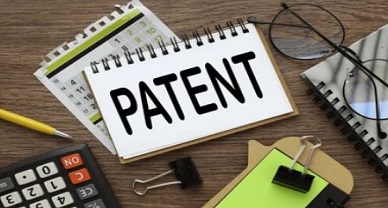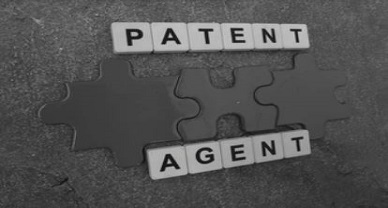Revocation of Patents According to Indian Patent Act, 1970: Insight
This article focuses on the revocation proceedings which is one of the mechanisms available for annulations of Patents in India.
1. What is the revocation of a patent?
When a patent has been sealed or granted, it is not always the case that the patent shall stay unhindered by any third party till the life of the patent. The patent can be challenged by certain people on different grounds, and a method to cause the same is by filing a revocation petition/ post-grant opposition proceedings. This article focuses on the revocation proceedings.
2. Why does one file a revocation petition?
As the Patent Act does not presume Patents granted to be valid, rights granted on such Patents cannot be absolute. Third parties that are required to seek permission from the Patentee for practicing any of the exclusive rights bestowed upon him are also given a chance to challenge the validity of the Patents. This challenge can be instituted on own as well as on the Patentee asserting infringement of Patent rights.
3. Who can file a revocation petition?
As per Section 64 of the Patent Act, 1970, the following persons can file the petition in the High Court:
- any person interested;
- the Central Government
- the person making the counter-claim in a suit for the infringement of a patent
4. Where can a revocation petition be filed?
Thus, a revocation petition can be filed in the Intellectual Property Appellate Board by the interested person or the Central Government, or it can be filed as a counter-claim in a suit for an infringement at the High Court.
To bring in the aspect about the jurisdiction of suits of infringement and the corresponding revocation petitions, Section 104 of the Patents Act, 1970 states that no suit of infringement can be brought before a court inferior to the District Court having jurisdiction to try the suit and in the event of a counter-claim for revocation of the patent made by the defendant, such suit for infringement and the said counter-claim must be transferred to the High Court.
5. What are the grounds under which a revocation petition can be brought?
Under Section 64, the following are the said grounds:
- the invention, so far as claimed in any claim of the complete specification, was claimed in a valid claim of earlier priority date contained in the complete specification of another patent granted in India;
- the patent was granted on the application of a person not entitled to apply therefore;
- the patent was obtained wrongfully in contravention of the rights of the petitioner or any person under or through whom he claims;
- the subject of any claim of the complete specification is not an invention;
- the invention so far as claimed in any claim of the complete specification is not new, having regard to what was publicly known to publicly used in India before the priority date of the claim or to what was published in India or elsewhere in any of the documents referred to in Section 13;
- the invention so far as claimed in any claim of the complete specification is obvious or does not involve any inventive step, having regard to what was publicly known or publicly used in India or what was published in India or elsewhere before the priority date of the claim;
- the invention, so far as claimed in any claim of the complete specification, is not useful;
- the complete specification does not sufficiently and fairly describe the invention and the method by which it is to be performed, that is to say, that the description of the method or the instructions for the working of the invention as contained in the complete specification are not by themselves sufficient to enable a person in India possessing average skill in, and average knowledge of the art to which the invention relates, to work the invention, or that it does not disclose the best method of performing it which was known to the applicant for the patent and for which he was entitled to claim protection;
- that the scope of any claim of the complete specification is not sufficiently and clearly defined or that any claim of the complete specification is not fairly based on the matter disclosed in the specification;
- that the patent was obtained on a false suggestion or representation;
- that the subject of any claim of the complete specification is not patentable under this Act;
- that the invention so far as claimed in any claim of the complete specification was secretly used in India, otherwise than as mentioned in sub-section (3), before the priority date of the claim;
- that the applicant for the patent has failed to disclose to the Controller the information required by section 8 or has furnished information which in any material particular was false to his knowledge;
- that the applicant contravened any direction for secrecy passed under section 35
- that leave to amend the complete specification under section 57 or section 58 was obtained by fraud.
- that the complete specification does not disclose or wrongly mentions the source or geographical origin of biological material used for the invention;
- that the invention so far as claimed in any claim of the complete specification was anticipated having regard to the knowledge, oral or otherwise, available within any local or indigenous community in India or elsewhere.
6. Does revocation restrict itself to Section 64?
It is important to note that section 64 does not restrict grounds to be used in revocation to only those provided in section 64 whereas section 25 (2) setting out grounds used in post-grant opposition proceedings is restrictive in nature.
7. What are the other provisions concerning revocation?
Under Section 65, if a patent is claimed to be related to atomic energy, a revocation petition can be filed against it. Such patent shall not be granted under the Atomic Energy Act, 1962, and shall be revoked. Under Section 66, if the Central Government is of the opinion that a patent or the mode in which it is exercised was mischievous to the State or prejudicial to the public, after giving an opportunity to the patentee to be heard, it may make such declaration in the Official Gazette and the patent shall stand revoked.
Moreover in the Enercon (India) Ltd and Ors. v Enercon Gmbh (2014) 5 SCC 1, it was laid down by the Supreme Court that when post-grant opposition proceedings are instituted by a party, he cannot institute a revocation petition or counter-claim of revocation proceeding against the same patent.
- “‘Person interested’ under Section 64 would mean a person who has a direct, present, and tangible commercial interest which is injured or affected by the continuance of the patent on the register. (Ajay Industrial Corporation v Shiro Kanao of Ibaraki City AIR 1983 Del 496)”
About the Author: Ms. Anjana Mohan, Symbiosis Law School, Pune, an intern at Khurana and Khurana, Advocates, and IP Attorneys. Views expressed in this article are solely of the intern and do not reflect the views of either of any of the employees or employers. Queries regarding this may be directed to support@ipandlegalfilings.com.


